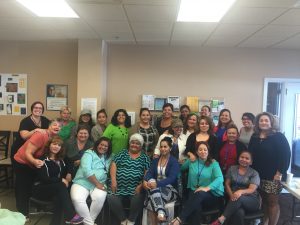Victim Assistance in Colorado: an Interview with COVA Director, Nancy Lewis

In the past decade, considerable progress has been made toward securing protection, rights, and resources for victims of crime. In addition to grassroots efforts by citizens and the victims themselves, organizations like the Colorado Organization for Victim Assistance (COVA) have been at the forefront of victims’ rights at both a state and national level. Recently, Aftermath had an opportunity to speak with Nancy Lewis, COVA’s Executive Director, who describes the role of the organization, as well as what steps it has taken to helping victims in the state of Colorado and nationwide.
What is COVA?
COVA was formed in 1982 as a nonprofit statewide membership agency for professionals who work with crime victims. According to Lewis, COVA’s Executive Director, the organization’s mission is “to provide education and public awareness, and focus on the legal issues concerning victims of crime.”
Currently COVA works with over 800 members, including Law Enforcement Officers, District Attorneys, Victims’ Advocates and sometimes crime victims themselves. All members share one thing in common: their work brings them in direct contact with victims and their families. “Our membership consists of those who are most concerned about the issues impacting crime victims,” Lewis says. “By operating in an inclusive and compassionate manner, COVA creates solutions and positive change.”
COVA assists crime victims by helping to heal their families and communities through leadership, education, and advocacy. “We also have an emergency fund to help victims get back on their feet after the trauma,” Lewis states. Victims must work through their local victim’s advocate to receive access to these funds.
 Training and Education
Training and Education
To Lewis, the level of training COVA advocates possess is the hallmark of the organization. The Colorado Advocate Certification Program (CACP) was created as a voluntary certification to inform on the wide variety of circumstances that may concern victims’ advocates throughout the state of Colorado
“There was a lot of discussion on professionalizing the field,” Lewis explains. “We started talking about creating a certification in 2000. To become certified, you have to be tied to an agency and be an advocate. Continual training is required as well as a certain number of hours in the field. There is also an ethics portion. It must be renewed every two years. There are three levels of certification: basic, intermediate, and advanced.”
Moreover, Lewis is proud of the network the group has built. “People are interested in our policies. We spend money on Capitol Hill to prevent laws from being created that would hurt victims.” To fulfill their educational aim on a state level, the group hosts webinars for partner agencies and a yearly conference, which is open to the public. Additional training and workshops are more exclusive and cover a wide array of topics, from human trafficking to domestic violence. “With the academy, we’re more selective about enrollment because the content we present at these events can be traumatizing,” Lewis notes.
COVA also has experienced amazing success with its internship program, which Lewis describes as “creating leadership beyond our expectations.” The program is designed to attract current students from under-represented populations, placing them in paid positions in existing programs in order to improve awareness while creating employment opportunities and developing hands-on skills that will help serve the physical and emotional needs of crime victims.
A Word to Victims
When Aftermath asked Lewis if she had any advice for victims or their families, she explained to us that a victims’ advocate is instructed to listen and not give advice: “We have a formula for dealing with victims involved in different situations. First we check to see if they are safe and help them to assess their safety. We also strive to be absolutely present with a victim and let them express whatever emotions they have at the time. For example, we allow someone to feel guilty so they can move on to the feeling of loss. We don’t tell them that they shouldn’t be feeling guilty. We prepare and predict by explaining to them what they may have to deal with either emotionally or with the legal system.”
If you or a loved one are a victim of crime, The National Center for Victims of Crime provides links to local resources and assistance programs in your area. You can also learn more about donating or volunteering.
How Aftermath Helps Victims
Since 1996, Aftermath Services has provided dedicated, compassionate crime and death cleanup services to thousands of families coping with the aftereffects of serious tragedies. Often, educating families means reaching out to first responders, law enforcement, and even victims advocates, who are on the front lines each and every day. Furthermore, we work with insurance and third-party emergency funding programs like those sponsored by COVA in order to bring further peace of mind to those who are facing these difficult situations. For more information on our services, or on victims compensation funds, please visit our website.
 877-872-4339
877-872-4339  Contact Us
Contact Us 






